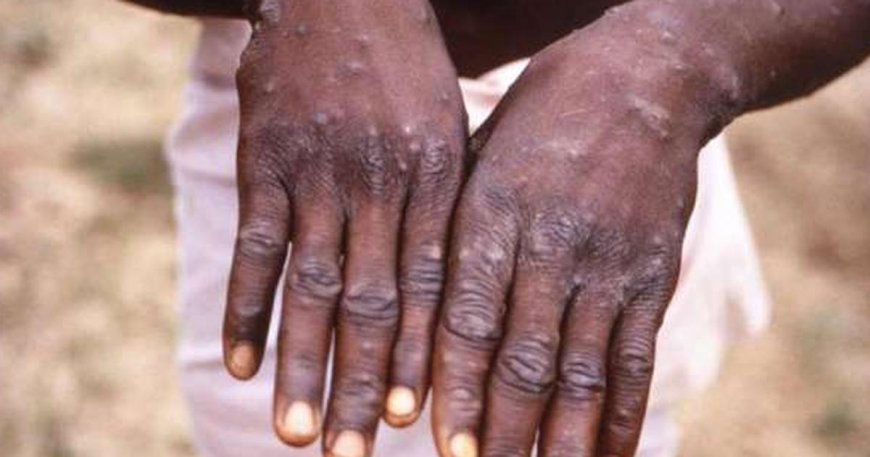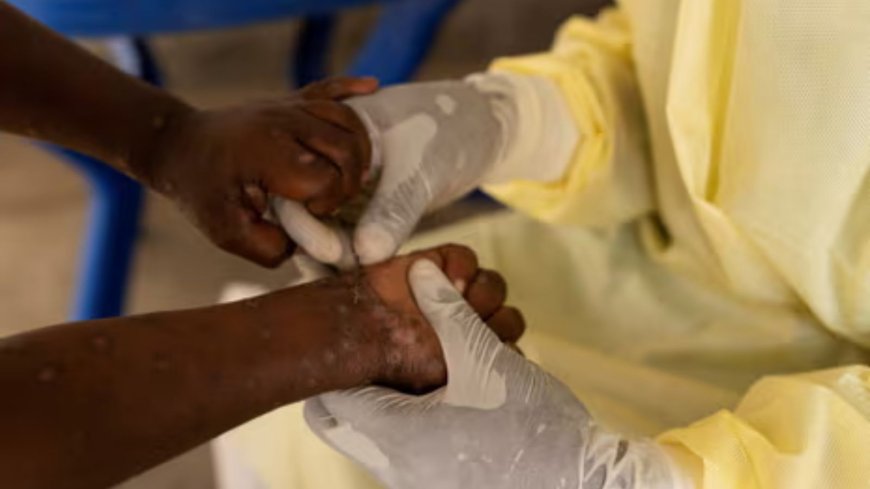Kenya Confirms Second Mpox Case
Health Cabinet Secretary Deborah Barasa revealed that the laboratory-confirmed case of the disease in the country was an adult male truck driver.

Kenya's Ministry of Health has reported a second confirmed case of Mpox (monkeypox), a few days after five new suspected cases were detected.
In a statement on Friday, August 23, Health Cabinet Secretary Deborah Barasa revealed that the laboratory-confirmed case of the disease in the country was an adult male truck driver.
He had presented to the Port Health screening desk at the Malaba One Stop Border Post- Busia County with salient symptoms of the disease and a history of travel to the epicentre of the outbreak in the Democratic Republic of Congo (DRC).
"The patient has been isolated and is under active management in one of our health facilities in Busia County. Further, active surveillance for suspected cases has been enhanced in the region and across all counties to ensure the spread of the disease is controlled," the statement read in part.

Health CS Deborah Barasa during a meeting on August 23, 2024. /MINISTRY OF HEALTH
CS Barasa also revealed that to date, a total of forty-two (42) samples have been submitted to the Ministry's laboratories for Mpox disease testing out of which forty (40) samples have tested negative for the disease.
In addition, 426,438 travellers have been screened at various Ports of Entry across the country.
"The Ministry emphasizes that our health facilities are adequately staffed and well-equipped to diagnose and manage this disease and therefore its identification should not be a cause for alarm," Barasa added.
Barasa called on Kenyans to regularly wash their hands with soap and running water, or use an alcohol-based hand sanitiser, practice good hygiene and avoid close contact with individuals exhibiting Mpox-like symptoms.
She also advised members of the public to avoid sharing personal items such as towels, utensils, or clothing materials.
On August 17, Mary Muthoni, Principal Secretary of the State Department for Public Health & Professional Standards, confirmed that a total of 29 suspected cases of Mpox were identified, the five coming in the past 24 hours. Of these, however, 23 tested negative for Mpox, while six cases were pending confirmation from the reference laboratory.
The Ministry also confirmed receiving samples from a case suspected to have emerged in Kiambu County and earlier reported as true by its county government.
The country has been heightening its public health defences against the potentially deadly Mpox virus, leveraging the very protocols that proved crucial in battling the COVID-19 pandemic just a few years ago.
With over 500 lives lost to Mpox in the Democratic Republic of Congo (DRC) and the World Health Organisation (WHO) now classifying the virus as a global public health emergency, Kenya has adopted a vigilant stance, particularly in light of its porous borders with neighbouring East African countries.
The reporting of the suspected case in Kiambu County is an indication of the seriousness of the matter with the government leaving nothing to chance, stepping up surveillance at Kenya’s borders which have become critical control points.
The common COVID-19 control measures which included active equipment like thermoguns, thermoscanners, personal protective equipment, handwashing facilities, and hand sanitisers are now in full force in an effort to mitigate the spread of the disease, with the government also sensitising the masses on what they need to do to prevent Mpox.
The strategy is a deliberate echo of the tactics that helped Kenya navigate the worst of the COVID-19 pandemic. Digital thermometers, now an essential tool in the fight against viral outbreaks, have once again taken centre stage.
These devices, equipped with infrared sensors, can swiftly measure body temperature without physical contact, making them ideal for screening large groups of people at border points. During the COVID-19 crisis, they were vital in identifying potential cases and curbing the virus's spread.
Mpox, caused by a virus in the same family as smallpox, is generally less severe but still poses a significant threat. Originally transmitted from animals to humans, it now spreads primarily through close human contact.







